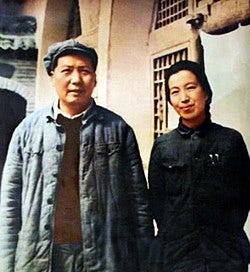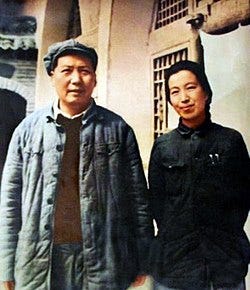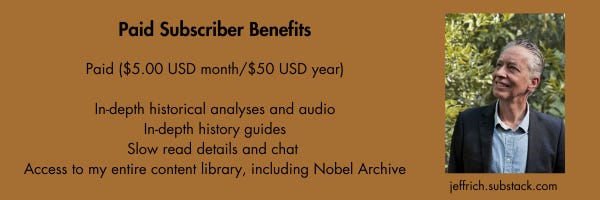Welcome to the sixth instalment of my eight-week deep dive into China as a modern civilization-state. This deep dive guides you through one leading scholarly history—Klaus Mühlhahn, Making China Modern: From the Great Qing to Xi Jinping—as part of my World History World Tour 2025.
The sixth instalment looks at the Great Proletarian Cultural Revolution, and its Ten Years of Chaos between 1966 and 1976. In this week’s deep dive, we ask what happened to culture and life when Mao "put politics in command”?
Mühlhahn writes:
The Cultural Revolution was, despite its name, not at all limited to the sphere of culture. Rather, it was a violent, revolutionary mass movement intending “to sweep away all Monsters and Demons” and “to carry the Great Proletarian Cultural Revolution through to the end.” Its stated goals were “to overthrow everything” (dadao yiqie) and to engage in a “full-scale domestic struggle” (quanmian neizhan). (Mühlhahn, Making China Modern, p. 448)
There is a tendency in Western popular history of Communist China to treat the Cultural Revolution as the perfect symbol of Mao’s communist dictatorship. It was the pathological but perfect expression of Mao’s personal dictatorship and the ideological possession of Communism. Mühlhahn makes clear that although Mao was “the mastermind behind the pandemonium,” the Cultural Revolution was not his work alone. Mao called on the masses to “bombard the headquarters.” Many of the masses chose to throw the bombs and, for their own complex reasons, smash the olds of China that they resented. Nor did the pandemonium follow Mao’s masterplan. The headquarters fought back. Rival factions jockeyed for power. Domestic and external pressures pushed events in surprising directions. State and society fought a culture war. The Ten Years of Chaos traumatised China and created contradictory legacies in the rest of the world.
“While the Great Proletarian Cultural Revolution did not create a major disaster or famine in the way the Great Leap Forward did, its overall impact on Chinese politics and society was pervasive, violent and destructive, and it lasted for the decade of the Cultural Revolution itself and for many decades thereafter.
(Mühlhahn, Making China Modern, p. 449)
Below the line I share with you
Mühlhahn’s account of how this extraordinary event fits into his longer story of how China became modern through the formation of institutions
the story of how the Cultural Revolution sought to overthrow everything, and
my reflections on the failure of the Cultural Revolution to “put politics in command” as part of a struggle of the new against the old.
You may also want to check back on my earlier posts on China’s Cultural Revolution.
Red Memory. Dread Trauma. On a recent history of the Chinese Cultural Revolution
Farewell My Concubine in China's History - or how to gain clarity and feel compassion with history
Snow White, Trump’s Cultural Revolution and the USA’s Lost Soft Power
And as a quick recap—especially for new subscribers—the deep dives of the China World History Tour so far have been:
How Modern China began in Qing Institutions (1644-1800)
Opium, Gunboats, Rebellions and Unequal Treaties: How Modern China Was Forged (1800-1900)
Upending the Empire and Rebuilding the Republic (1900-1930)
Assessing China’s Great Leap Forward: Catastrophic Misjudgement or Crime Against Humanity? (1949-1961)





